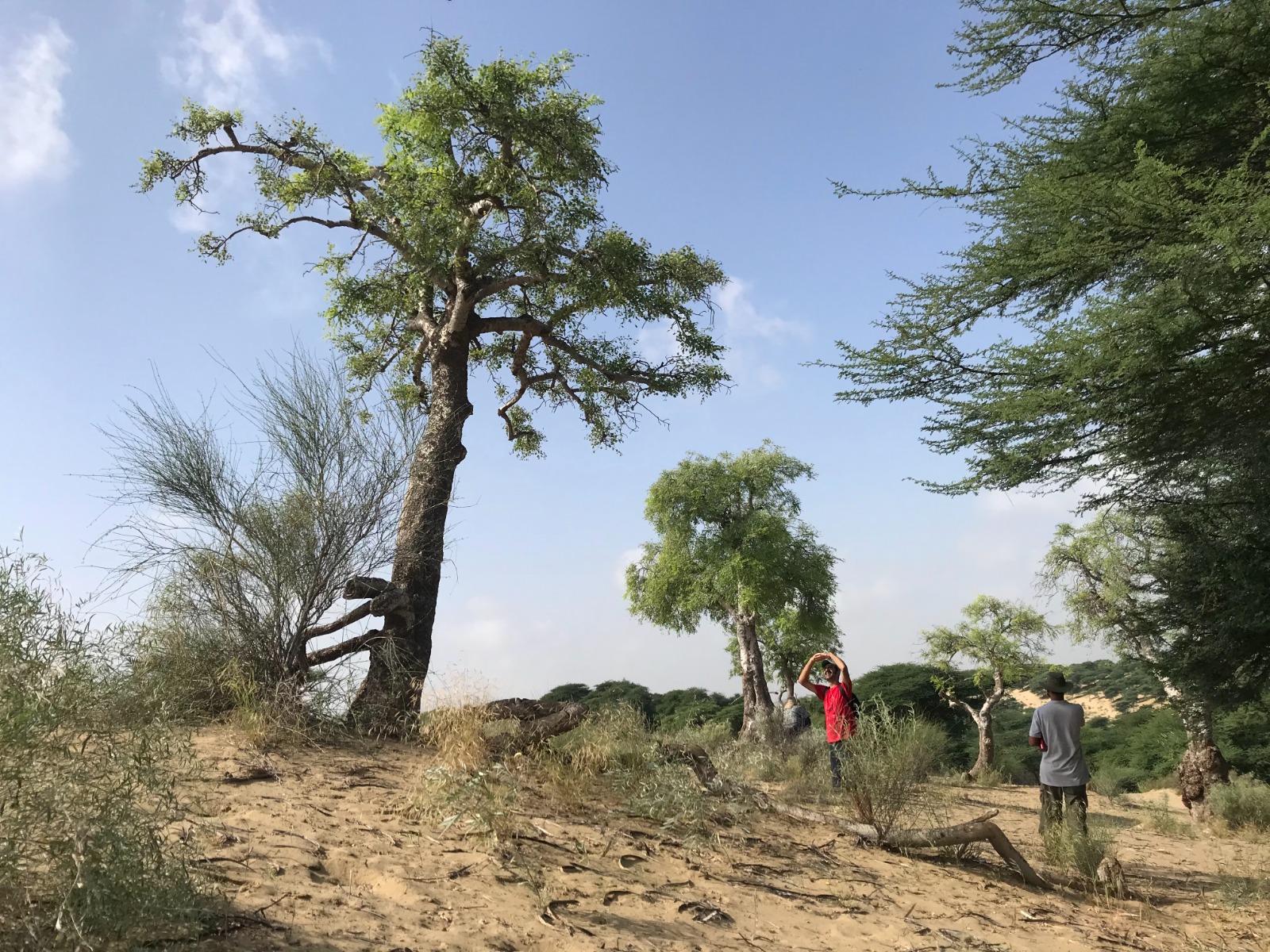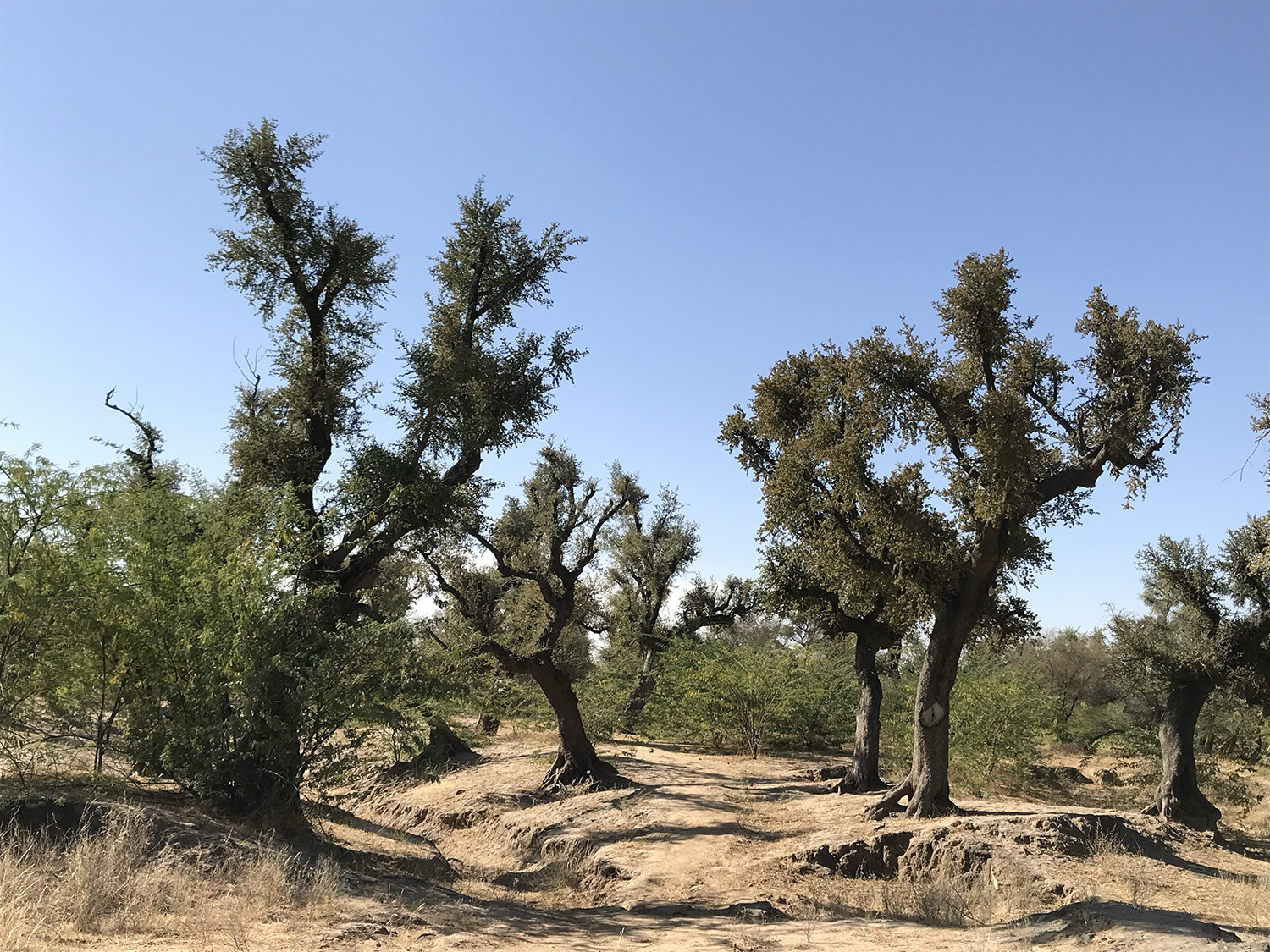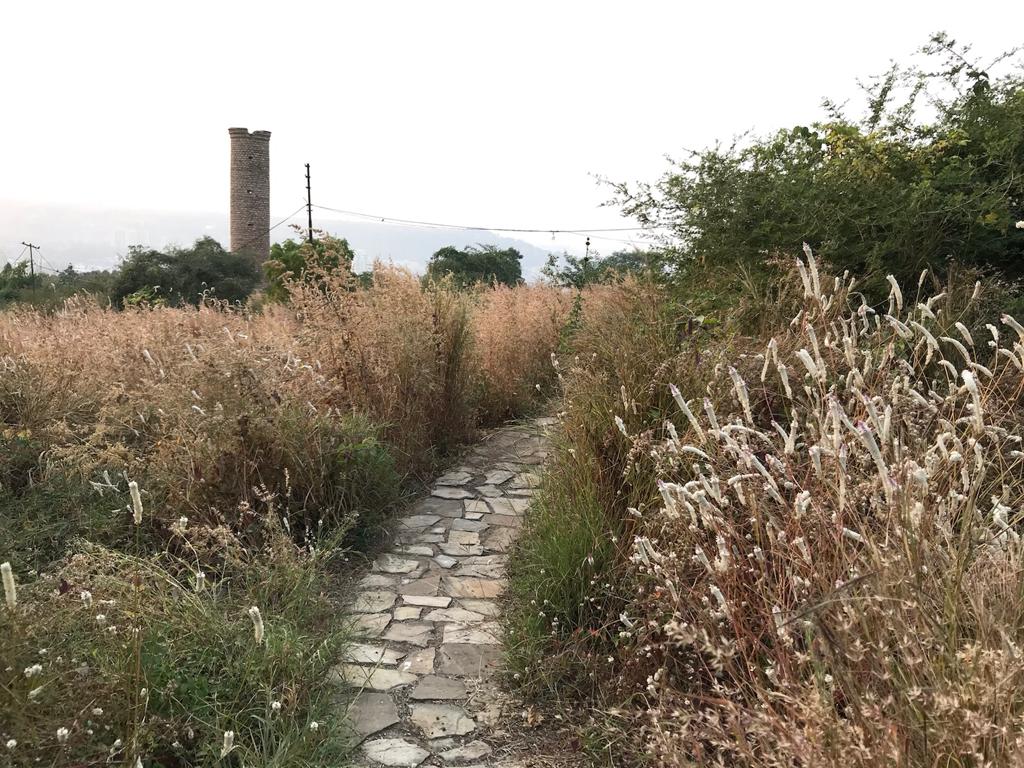We reached out to Fazal Rashid, to learn more about his journey, some of the challenges that he has come across, and some exciting updates from a new project that he is working on. Fazal is a native-plant gardener and nursery-wala. Since about 2018, he has been working on various small restoration projects, including a native-plant nursery in Delhi and a native garden in NE Rajasthan. He is based in Bhopal, setting up a nursery and running a project for a school in Gwalior. Here is a link to his profile on the ERA website.
 Image: Moringa concanensis in the desert
Image: Moringa concanensis in the desert
Can you share any species that you feel could be your avatar and why?
Not sure which species could be my avatar, but I’d love to be an avatar of the wild moringa tree (Moringa concanensis) we get in the desert in Rajasthan. They seem so much at ease in such extreme conditions, their delicate wispy boughs gently billowing in the desiccating hot ‘loo’ winds.
What has been your journey in finding yourself in this space?
Well, when ecological restoration came knocking at the door, I was already in the ‘plants and gardens’ world, making kitchen gardens and planting fruit trees in and around Delhi. Then a client asked us to create a ‘jungle’ on his 200-acre property in Pali, near Jodhpur. That’s when we started getting our hands into restoration and thinking about planting from a ‘rewilding’ perspective. As soon as we needed to plant native species, we realized we’d need our own nursery because the plants weren’t available anywhere. So we started one and, slowly, the nursery became an obsession as we started enjoying seed collection trips and the sense of adventure and achievement whenever we managed to germinate a new seed and add it to the nursery. A bit like an obsessive collector.
That first 200-acre project didn’t go anywhere but we found a couple of other folks interested in planting native species on their relatively small farm lands. So that’s how we started and got stuck in.
 Image: From one of his desert trips, a clonal stand of indrok (Anogeissus sericea var. nummularia), a lesser-known tree species that likes to grow in lime-rich seasonal waterways in the desert.
Image: From one of his desert trips, a clonal stand of indrok (Anogeissus sericea var. nummularia), a lesser-known tree species that likes to grow in lime-rich seasonal waterways in the desert.
In the landscape or your field of work- what future do you envision?
In terms of my field of work, I notice a burgeoning interest in ecological restoration (I’m a part of this as well). On a small scale, I see future opportunities to work with concerned land owners to plant up parts of their land with appropriate native species. But I’m unsure how restoration will happen at a ‘landscape’ scale in India. Too many small land owners divided by caste and class. The government systems seem too ossified and corrupt to make room for the kind of slow, dynamic and long-term engagement that restoration demands. As a culture, we seem to have lost our traditional ties with nature but without re-imagining and re-forming those ties through the wonderful weave of stories emerging from contemporary science. The strength of religion here also seems to only strengthen a human-centric perspective on everything. I recently saw a ‘restored’ Forest Dept. site that ended up being a Miyawaki plantation. Sorry, this has turned into a random list of thoughts but I guess that’s how I feel about the future here: not fully clear, except the fact that I see myself running a nursery of native plants and providing them to interested folks.
What are some of the challenges that you are facing, where you think the community can help or are seeking collaboration?
One challenge I face is how to talk about the value of rewilding and restoration in Hindi/Hindustani. Hindi doesn’t have a proper linguistic apparatus to describe restoration in a way that’s commonly understood. There are folk poets like Kabir and Tulsi some of whose work can be appropriated to describe the inherent value of nature and, perhaps at a stretch, restoration. But fundamentally there are two separate issues here:
First: how do you talk about restoration to someone whose world view isn’t shaped by science?
Second: how do you talk about restoration to someone whose world view has grown distant from nature-centric or nature-based ways of viewing the world, those usually referred to as ‘indigenous’ or ‘tribal’.
These are two sides of the same coin and I face these issues talking to people almost everyday. I’m happy to talk with anyone facing similar problems.  Image: A picture from the wildflower meadow project in Gwalior
Image: A picture from the wildflower meadow project in Gwalior
Could you share something exciting related to your work or a new interest or direction your work is taking right now?
Yes! Last monsoon we had some exciting results with broadcasting annual wildflower and grass seed mixes for a ‘wildflower meadow’ project I’m currently working on. This year we’ll be doing lots more with even better results, hopefully.

